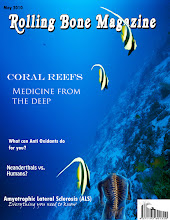
The Notebook is a romantic drama film directed by Nick Cassavetes, based on the novel by Nicholas Sparks. The film stars Ryan Gosling and Rachel McAdams as Noah and Allie, a young couple who fall in love during the early 1940s.
The story is set in South Carolina in two different time period's; the 1940's and the present day. At first it is not clear if the two timelines are related through characters or stories, until the reader realizes that the common thread in both spans of time is a notebook that is being read by an elderly male character to a sickly female character. From a faded notebook, the old man's words bring to life the story about a couple who is separated by World War II, and is then passionately reunited, seven years later, after they have taken different paths. Though her memory has faded, his words give her the chance to relive her interesting youth and the unforgettable love they shared. As teenagers, Allie (Rachel McAdams) and Noah (Ryan Gosling) begin a whirlwind courtship that soon blossoms into tender intimacy. The young couple is quickly separated by Allie's upper-class parents who insist that Noah isn't right for her. Several years pass, and, when they meet again, their passion is rekindled, forcing Allie to choose between her soul mate and class order. This beautiful tale has a particularly special meaning to the older gentleman (James Garner), who regularly reads the timeless love story to his aging companion (Gene Rowlands). As an old man, Noah tries desperately to familiarize Allie with the memories they shared during their life together.
It becomes apparent that the older Allie has Alzheimer's, the incurable, degenerative, and terminal disease; a form of dementia. In Allie's case, she struggles to remember the history of her life. It seems as though Allie is far into her Alzheimer's disease. She cannot remember her name, nor can she recognize the familiarity of others surrounding her, specifically, Noah. Though she cannot entirely identify the people like Noah she does have moments of lucidity. She vaguely recognizes the story being told to her and she always seems to find comfort in the telling of the story.
While the story is told with affection and promotes to viewer in engaging and pitying Noah and Allie, the scientific principles of the Alzheimer disease are questionable. Allie suffers from long term and short term memory loss; a common symptom of the Alzheimer's disease. What is strange is the fact that Allie cannot remember information about her past, however she has no trouble speaking to others. The diagnosis of Alzheimer's includes significant thinking deficits.
In at least one of four areas, including expressing or comprehending language; identifying familiar objects through the senses; poor coordination, gate, or muscle function; and the executive functions of planning, ordering, and making judgments. When Allie 'met' other people, such as her children, she could not identify them, yet she performed a normal, social, and intellectual response. Studies indicate that even at the mild stages of dementia, victims have problems with expressing and understanding language. The director did attempt to show confusion of place and time but it was very brief. As Noah reaches the end of the story, Allie begins to remember her past and realizes the story was about her. From a scientific viewpoint, this is almost impossible. Alzheimer's is known to have good and bad days of sense of place and time; however, it is highly improbable that a person suffering from Alzheimer's can quickly remember all information about themselves and their loved ones.
While Alzheimer's disease has a considerable variation in functioning, behaviour, psychological symptoms for each individual, this scenario is simply unrealistic. In reality, this condition is devastating for family members and friends. In the movie, Noah was deeply saddened by his lovers disease, but he did have the ability to communicate comparatively well with Allie.
The Notebook did not accurately portray the possible symptoms of Alzheimer's, but instead focused only on Allie's forgotten past. In reality, there are many factors that go alongside this disease. Though this movie contained falsehood's of what Alzheimer's is truly like, it did evoke emotion and thought towards the disease. Noah's optimism throughout the entire movie could inspire many to learn, support and love one's with this demoralizing disease. With scientific facts aside, this romantic drama is sure to touch the heart's of others.
Before Allie and Noah's death, Allie once again realizes the life she lived with Noah. Although this ending is sad, there is a sense of optimistic hope for the future. This is a must see for viewers who want to be emotionally entertained. It's a tear jerker!
Bibliography
work
Alzheimer Society of Canada. April 2010. 26 April 2010
Segal, Jeanne and Melissa Wayne. Alzheimer's Disease: Help Guide. April 2009. 26 April 2010

No comments:
Post a Comment